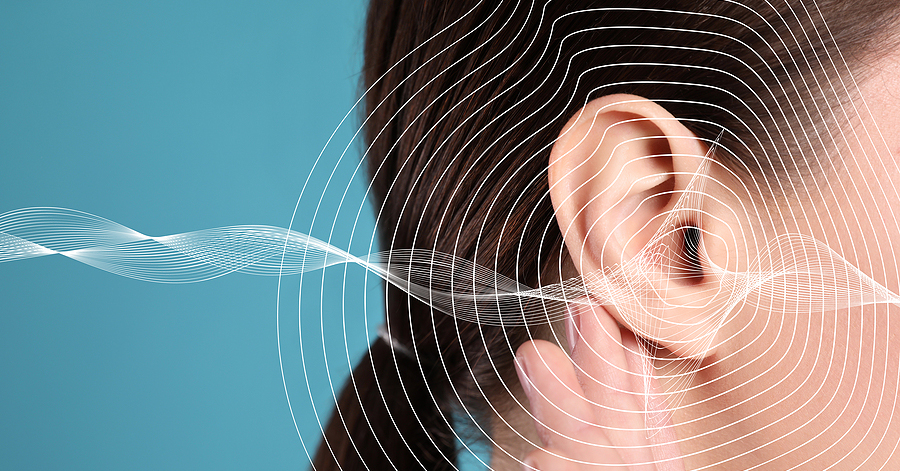Hearing loss affects millions of Americans. In many, the problem goes unchecked. You might even be one of those affected. Without a hearing screening, it’s hard to know.
So how often should you have a hearing test? According to industry guidelines, it depends on your age and whether you’re currently noticing any hearing concerns.
Why Should You Have a Hearing Test?
Hearing tests are useful tools for determining whether you are experiencing hearing loss.
Losing your hearing can affect your quality of life. Untreated hearing problems can affect your relationships with others and cause you to withdraw from social interactions. That can lead to feelings of loneliness.
Hearing loss may also affect your job performance. People with hearing problems are more likely than their peers to be unemployed.
Your inability to hear well can affect your overall health. Hearing loss is associated with falls, hospitalizations and cognitive decline. People with hearing problems may even die at earlier ages.
Unfortunately, many people struggle with hearing concerns for a long time before taking steps to deal with the issue. On average, it takes almost nine years for people to do something about the problem.
If it’s time for you to have your hearing tested, don’t put it off. Hearing screenings aren’t just good for your ears; they’re good for your overall physical and mental well-being. The sooner you identify a concern, the sooner you can seek treatment.
What’s the Difference Between a Hearing Screening and a Hearing Evaluation?
Often, when you hear someone talk about a hearing test, what they’re specifically referring to is a hearing screening.
Hearing screenings are quick exams that you either pass or fail. They typically involve identifying sounds at various frequencies. If you can hear the sounds in both your ears, then you pass the test.
Various professionals can perform hearing screenings. That includes nurses and audiologists.
If you don’t hear some of the sounds, then you’ll be referred for a more in-depth test. It may be called a hearing evaluation. Because a hearing evaluation is often performed by an audiologist — and because it has to do with hearing — it can also be referred to as an audiological evaluation.
Hearing evaluations are more comprehensive than screenings. You may be instructed to respond to noises that you hear and say various words aloud. Although this exam is more in-depth, the audiological staff will still work hard to keep the test short and make sure you’re as comfortable and relaxed as possible.
Comprehensive evaluations are useful for determining whether you do, in fact, have hearing loss. If so, the audiologist will also use this test to learn more about your particular hearing impairment and how best to treat it.
How Often Should You Have a Hearing Test?
Children often have hearing screenings done at school. Adults aren’t in that setting, though, so it can be easy to let years and years go by without getting your hearing checked. Like many individuals, you might wait until your hearing loss is undeniable before you seek professional help.
Keeping up with a regular schedule for hearing screening can keep you from ending up in that situation.
How often you should have your hearing checked as an adult depends on your age. The American Speech-Language-Hearing Association (AHSA) offers recommended guidelines for everyone over the age of 18.
For the first part of adulthood, ASHA recommends undergoing a hearing screening once every decade. If you work in a loud setting, you may need to be screened more often than that. For those over the age of 50, the recommendation is to have a screening done once every three years.
Of course, if you are experiencing problems with your hearing, you can request screenings at shorter intervals.
As for hearing evaluations, there’s no set schedule. You’ll only need to schedule one if you fail a screening.
Where Should You Go for a Hearing Test?
Now that you have an answer to “How often should you have a hearing test?” you may realize that you’re due for this screening. Your next question may address where you should go to have this test done.
Audiology offices often provide hearing screenings as a free service. For example, our Shoreham, New York, practice welcomes new and established patients to come in for this quick test.
When going to the audiologist for a screening, it’s usually best to set up an appointment so that the office will know to expect you. Even still, many places do accept walk-ins.
You may receive the results of your screening right away. If your test indicates that you might be a good candidate for hearing aids, the staff may start to discuss options with you. You may be referred for a complete audiological evaluation as well.
Depending on where you had your screening done, you may be able to do the evaluation in the same office. For example, audiologists can do both types of tests. A nurse at your general practitioner’s office, though, would need to send you elsewhere for an audiological evaluation.
Once the evaluation has been performed and reviewed, an audiologist can develop a personalized treatment plan that’s customized for your specific hearing issues.
Is It Time for Your Hearing Test?
You can stay proactive about your audiological health by getting regular hearing screenings.
How often should you have a hearing test? If you’re an adult under the age of 50, you should get screened at least once every 10 years. Once you turn 50, this test should be done every three years. Screenings are a simple way to take care of your hearing.At North Shore Hearing, we’re here to help. We offer free hearing screenings and perform complete hearing evaluations as well. Call today to schedule your appointment or learn more about our audiological services.


